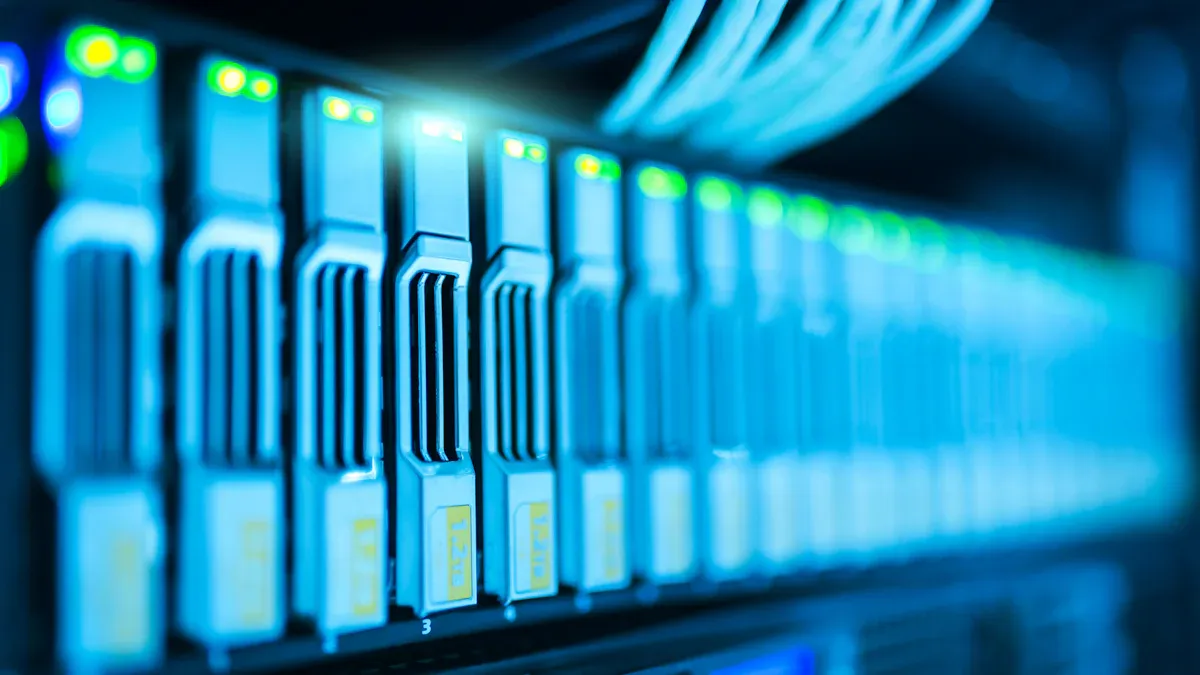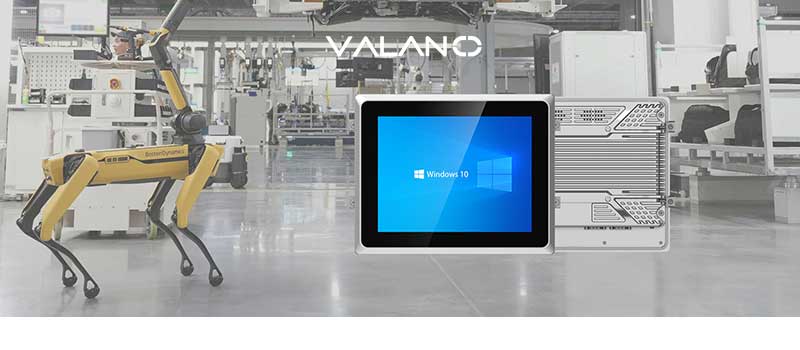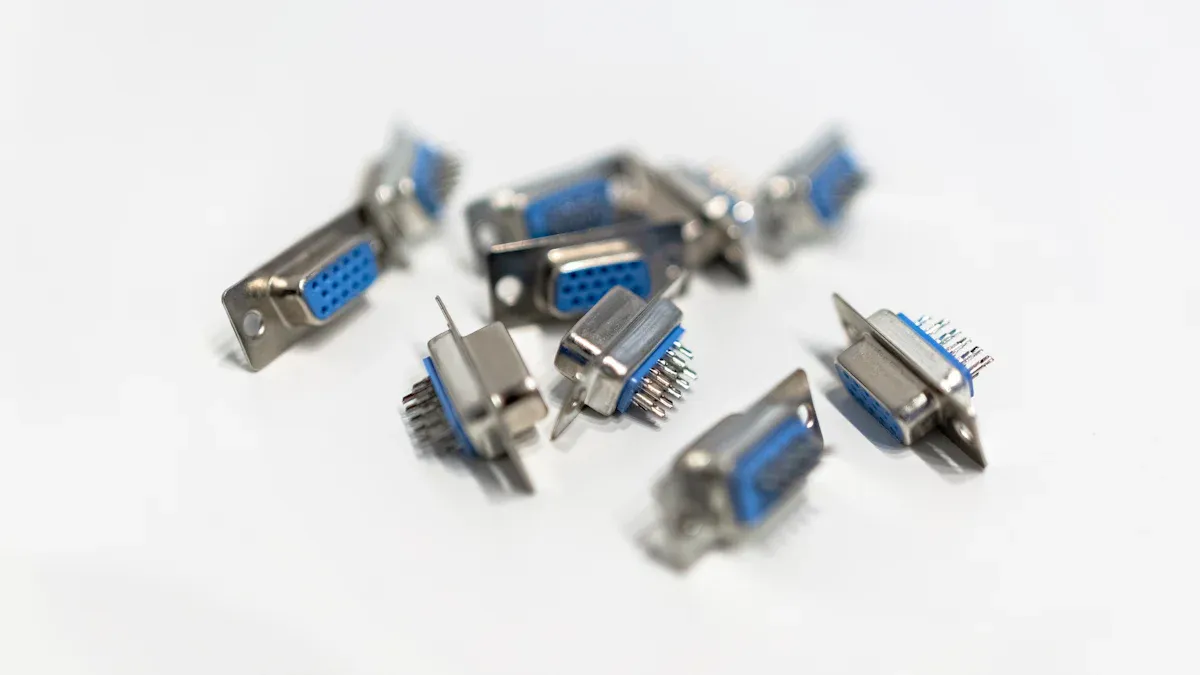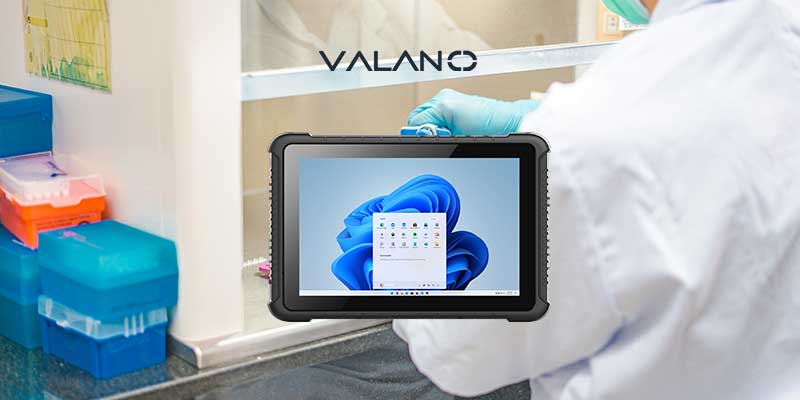
Industrial panel PCs are tough, all-in-one computers made for hard jobs. They are built to survive tough conditions like dust, water, and heat. These computers are strong and powerful, making them important for today’s industries.
By 2025, they will be even more important as industries use more automation, IoT, and eco-friendly systems. According to a report by Research and Markets, the market for industrial panel PCs will grow from $4.78 billion in 2024 to $6.41 billion by 2030, with a yearly growth of 4.90%. Rugged models alone will be worth $2.27 billion in 2025, growing at 7.1% each year until 2033. These numbers show how they help improve factories, shipping, and energy-saving systems.
Key Takeaways
Industrial panel PCs are strong, all-in-one computers made for tough places. They can handle dust, water, and extreme heat or cold, making them perfect for factories and shipping work.
By 2025, more people will need these PCs because of automation and smart technology. This shows how important they are for modern industries.
These PCs have powerful parts like fast processors and big memory. This helps them do hard jobs quickly. Their design without fans means less fixing and more dependability.
Industrial panel PCs can connect to many systems easily. This makes them work well with other machines and process data in real-time.
Their touchscreens are easy to use, helping workers control machines directly. This makes work faster and cuts down on training time.
Understanding Industrial Panel PCs
What Is an Industrial Panel PC?
An industrial panel PC is a tough, all-in-one computer. It has a touchscreen and a built-in computer system. This makes it small and easy to use. These PCs use either resistive or capacitive touchscreens. Capacitive screens are clearer and more dependable. Resistive screens work well when gloves are worn. This makes them useful in many industries like factories and food production.
These PCs are made to survive hard conditions. They have strong cases that block dust and water. They also work in very hot or cold places and handle shocks. This is why they are used more in industries like automation, manufacturing, and IoT.
Key Differences Between Industrial and Consumer PCs
Industrial panel PCs are designed for reliability and performance in demanding environments, unlike consumer PCs, which prioritize aesthetics and ease of use. For instance, industrial PCs often feature fanless designs to prevent dust buildup and reduce maintenance. They are equipped with robust processors like the Intel® Core™ i7 and support up to 32GB of memory, ensuring high performance and stability for critical applications.
Here’s a table showing the differences:
Feature | Industrial Panel PC | Consumer PC |
|---|---|---|
Durability | Strong, dust and water-resistant | Less durable |
Operating Environment | Works in tough conditions | For indoor use only |
Connectivity | Multiple I/O ports and expansion slots | Fewer connection options |
Touchscreen Technology | Capacitive or resistive | Only capacitive |
These features make industrial PCs perfect for jobs needing powerful and reliable computers.
Why Industrial Panel PCs Are Built for Harsh Environments
Industrial panel PCs go through many tests to prove their toughness. They meet IP65 standards, so they resist dust and water. They are tested to work in very hot or cold weather. Vibration and drop tests make sure they don’t break during use or transport.
Other tests check for static electricity to stop power surges. They also run for 48 hours straight to test long-term use. These tests make sure industrial PCs work well in tough places. Their strong build makes them important for industries needing dependable computers.
Key Features of an Industrial Panel PC

Strong and Long-Lasting Design
Protection from Dust, Water, and Extreme Weather
Industrial panel PCs are made to handle tough places. They meet IP65 or IP67 standards, keeping out dust and water. These PCs work in very hot or cold weather. This makes them great for factories, oil fields, and food plants. Their strength ensures they stay reliable in hard environments.
Durable Materials for Long Use
Industrial PCs use strong materials to last a long time. Their cases are often metal or tough plastic to protect parts inside. These materials resist damage, so replacements are needed less often. Companies report fewer breakdowns due to their sturdy designs. This makes them a smart choice for industries needing reliable tools.
Powerful Hardware
Fast Processors and Large Memory
Industrial PCs have strong processors like Intel® Core i7 and up to 32GB memory. This helps them handle hard jobs like tracking data or running machines. Whether managing a factory or checking deliveries, these PCs keep things running well.
Fanless Systems for Better Performance
Many industrial PCs are fanlss, stopping dust from getting inside. This design makes them more reliable and easier to maintain. Fanless systems are perfect for dusty places, keeping them working without problems.
Flexible Connection Choices
Works with Industrial Systems
Industrial PCs connect easily with many systems using protocols like Modbus and CAN bus. They can talk to sensors, controllers, and other tools. This makes them fit the needs of different industries.
Multiple I/O ports for Easy Connections
These PCs have many ports like USB, Ethernet, and serial ports. They also have slots for extra hardware, useful in oil and gas work. Here’s a quick look at their connection options:
Connection Type | Use |
|---|---|
USB Ports | For plugging in devices |
Ethernet Ports | For connecting to networks |
Serial Ports | For older equipment |
Wireless Options | Wi-Fi and Bluetooth for easy use |
These features help industrial PCs fit into any system, boosting work efficiency.
Easy-to-Use Interfaces
Touchscreens for Simple Control
Industrial panel PCs have touchscreens that are simple to use. You can touch the screen to control the system directly. This means you don’t need a keyboard or mouse. It’s very useful in small spaces or when wearing gloves. The touchscreen works well even in tough conditions.
The screens are bright and clear, so they’re easy to see. They work well in dark places or under bright sunlight. This makes them great for watching and controlling machines in real-time. They act as Human-Machine Interfaces (HMIs), making hard tasks easier and faster.
Adjustable Software for Different Jobs
Industrial panel PCs come with software you can change to fit your needs. This lets them work in many industries and for different tasks. For example, in factories, the software can check machines or control robots. In shipping, it can track items and improve delivery systems.
The software is easy to use, so workers learn it quickly. This helps save time and boosts work speed. By adjusting the software, the PC can handle your specific job needs. This makes it a helpful tool for doing work better and faster.
Applications of Industrial Panel PCs

Manufacturing and Automation
Watching and Controlling Processes
Industrial panel PCs help watch and control factory work. They track production steps to make sure everything runs well. These PCs let workers control machines directly using touchscreens. Their strong build keeps them working in dusty or hot places. They also collect data to find problems and improve work speed.
Working with Robots and Smart Tools
Factories now use robots and smart tools more often. Industrial PCs easily connect with these advanced systems. They control robotic arms and check smart devices like sensors. For example, they manage robot assembly lines or IoT tools. This teamwork makes work faster and reduces mistakes, improving reliability.
Logistics and Supply Chain
Keeping Track of Inventory
Tracking inventory is very important for shipping and storage. Industrial PCs help check stock, follow shipments, and update records fast. They connect to IoT systems to gather data from sensors. This gives accurate information, helping avoid delays and keeping customers happy.
Watching Data and Making Decisions
Data helps make supply chains work better. Industrial PCs collect and study data where work happens. They track packages or check warehouse conditions. This helps fix problems early and plan better. With e-commerce growing fast, especially in Asia-Pacific, these PCs are key for handling more orders.
Retail and Customer Interaction
Self-Checkout and Payment Systems
In stores, industrial PCs make shopping easier with self-checkout and payment systems. They speed up buying and reduce waiting times. Their tough design works well in busy places. The software can be changed to fit different store needs.
Digital Ads and Signs
Industrial PCs power digital signs that show ads and deals. These screens are clear and can be touched for interactive displays. They grab attention and make shopping more fun. Whether in big malls or small shops, they help boost sales and attract customers.
Why Industrial Panel PCs Are Crucial in 2025
Helping Automation and Smart Factories
Automation is changing how industries work. Industrial panel PCs are important for this change. They help watch and control automated systems quickly. These PCs connect easily with robots, sensors, and smart tools. This keeps everything running smoothly. In smart factories, they manage robotic arms and check production data. This reduces mistakes and makes work faster.
The market shows how useful these PCs are:
It grew from USD 4.59 billion in 2023 to USD 4.78 billion in 2024.
By 2030, it will reach USD 6.41 billion, growing at 4.90% yearly.
This growth proves industries need automation to stay ahead.
Boosting IoT and Edge Computing
Industrial panel PCs are key for IoT and edge computing. They process data right where it’s made, cutting delays. This helps industries like factories, energy, and transport make quick decisions. These PCs work well in tough places, making them great for checking machines or managing energy systems.
Industry 4.0 and IIoT have raised demand for rugged computers. Industrial panel PCs meet this need with strong hardware. They support real-time control and data study. This makes them vital for modern industrial work.
Promoting Sustainability and Energy Saving
Sustainability matters a lot in 2025. Industrial panel PCs help save energy and cut waste. Their smart designs use less power and last longer. This means fewer replacements are needed. In energy systems, they track usage and suggest ways to save.
These PCs also help with renewable energy projects. They control wind turbines and solar panels for better efficiency. By using these systems, industries can lower their carbon footprint. This supports a cleaner and greener future.
Moving Forward with Industry 4.0 and New Technologies
Industry 4.0 is the future of industrial progress. It uses smart tools like AI, IoT, and robots to improve systems. Industrial panel PCs are key to making this happen. They help industries work faster and smarter.
These PCs collect and study data in real-time. They process information right where it’s made. This helps fix problems quickly and boosts efficiency. For example, in smart factories, they watch machines and solve issues fast. This reduces delays and keeps work running smoothly.
Industrial panel PCs also work with new tech like AR and machine learning. AR can train workers or fix machines easily. These PCs have the power to run these tools well. Their strong design keeps them working in tough places.
Another cool tech is digital twins. This creates virtual copies of real systems. You can test ideas on these models before using them. Industrial PCs handle the hard math for digital twins, making them very useful.
Using these PCs gets you ready for the future. They help you stay ahead in changing industries. Whether in factories, warehouses, or energy plants, these PCs make Industry 4.0 possible and exciting.
Industrial panel PCs are tough, all-in-one computers for hard jobs. They are strong, fast, and connect to many systems. These PCs are great for running machines, IoT, and saving energy.
In 2025, they will be even more important. They improve smart factories, edge computing, and green practices. Used in factories, shipping, or stores, they keep you ahead with new tech. Using industrial panel PCs gets you ready for a smarter and faster future.
FAQ
Which industries use industrial panel PCs the most?
Industrial panel PCs are used in factories, shipping, stores, and energy work. They help run machines, track items, power kiosks, and manage green energy. Their tough build makes them great for rough places.
How are industrial panel PCs different from normal computers?
Industrial panel PCs are made to be strong and last long. They can handle dust, water, and extreme weather. Unlike normal computers, they have no fans, many ports, and tough parts. These features make them work well in hard conditions.
Do industrial panel PCs work with IoT systems?
Yes, industrial panel PCs are great for IoT tasks. They process data quickly and help make fast choices. They connect to sensors, controllers, and other IoT tools using special systems like Modbus or CAN bus. This makes them key for smart factories and edge computing.
Are industrial panel PCs good for saving energy?
Industrial panel PCs are built to use less energy. Their fanless design uses less power, and their strong materials last longer. They can also check energy use and improve systems, helping save energy and support green goals.
What types of touchscreens do industrial panel PCs have?
Industrial panel PCs have resistive and capacitive touchscreens. Resistive screens work with gloves, good for food work or cold places. Capacitive screens are clearer and faster, perfect for detailed jobs in factories or stores.







